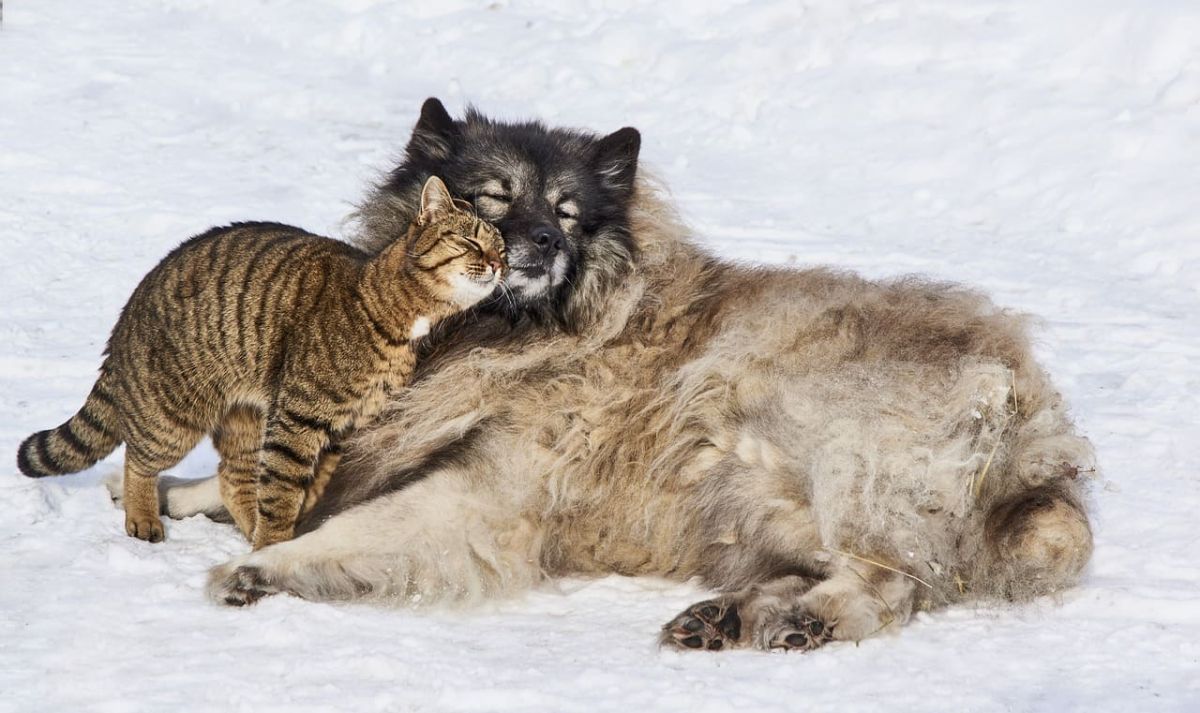A Guide to Grain-free Dog Food
 July 18, 2023
July 18, 2023
With the growing interest in pet health, grain-free dog food is becoming a choice for pet owners. Grain-free dog food is characterized by the absence of wheat, rice, corn and other grains, and is made from natural ingredients such as meat, vegetables, and fruits. Let's take a look at the characteristics and selection of grain-free dog food.
First, let's take a look at the advantages of grain-free dog food. The main ingredients of grain-free dog food are meat protein, vegetables and fruits, rather than the grains found in traditional dog food. This makes grain-free dog food more in line with the dog's natural eating habits and easier to digest and absorb. In addition, grain-free dog food usually has more natural nutrients added, such as vitamins, minerals, and antioxidants, which help to improve your pet dog's immunity and overall health. In addition, grain-free dog food can also reduce the risk of grain allergy, suitable for some grain-sensitive dogs.

However, there are some issues with choosing grain-free dog food. First, grain-free dog food usually comes with a higher price tag and is not suitable for pet owners with limited financial budgets. Second, grain-free dog food may taste a little different than traditional dog food, and some dogs may take a while to get used to it. Plus, grain-free dog food isn't for all dogs. Some dogs that do not have food allergies or digestive problems can continue to eat traditional dog food.
When choosing grain-free dog food, pet owners should be aware of the following. First, look at the product's ingredient list. Grain-free dog food should have meat protein as the main ingredient, not fillers or additives. Second, choose a grain-free dog food that contains a variety of vegetables and fruits to ensure that your pet dog is getting the full range of nutrients. In addition, grain-free dog food should be added with the right amount of fat and fiber to meet your dog's energy needs and the health of your digestive system.
Finally, pet owners should choose grain-free dog food based on the specific needs of their pet dog. If the dog has food allergies or digestive issues, grain-free dog food may be a good option. But if the dog does not have these problems, it can continue to eat traditional dog food. No matter which dog food is chosen, pet owners should be careful to switch gradually to avoid causing discomfort to the dog's stomach.
To sum up, grain-free dog food is characterized by being grain-free and adding more natural ingredients and nutrients, which is suitable for some dogs with grain allergies or digestive problems. When choosing grain-free dog food, pet owners should look at the ingredient list, choose the right product for their dog, and gradually switch to avoid stomach upset.

An Authoritative Glimpse into the World’s Top Ten Most Popular Categories of Pets


Why Do Cats Squirm Before Pouncing


True Heartwarming Stories: The Unbreakable Bond Between Animals and Humans


Pets’ Interesting News and Anecdotes


Owning a Pet May Help Maintain Mental Health When We’re Over 65


Pet IQ Test: Explore Your Pet's Intelligence and Potential


Pet Insurance: A Must for Comprehensive Pet Protection


Instruction to PetSmart















